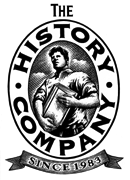
Research Materials

Book Review of "The Other Side of Eden"
by Cannery Row Foundation reader Herb Behrens
THE OTHER SIDE OF EDEN
Life with John Steinbeck
by John Steinbeck IV & Nancy Steinbeck
$27.00 Prometheus Books; 360 pages; photos; ISBN 1-57392-858-5Reviewed by Herb Behrens, Cannery Row Foundation
John Steinbeck, IV was the Nobel Laureate's youngest son. He had started this autobiography in 1988, 20 years after his father's death. And with his wife's help tells us about his life to 1979 as the son of a famous father. His original title was "Legacy" because he felt that his was the legacy of alcoholism that he had inherited from his father and mother.
There were five major forces in Johnâs life. His father, his mother, his wife, his religion, and his drugs. But perhaps the strongest force was his own will to live drug and alcohol free, and that wouldn't be achieved until 1988, just 3 years before his death.
To avoid the harsh reality of an abusive mother, he embraced the mind altering effects of drugs. He became addicted to codeine and hospitalized at the age of 7. He continues his story through prep school, trying to understand his absent father's contradictory philosophies about child rearing. His parents had divorced when he was 3, in 1949, and he lived with his mother, who was a "crazy alcoholic." His father was aloof and withdrawn while posing as the "great writer" to his sons and the public. John, IV joined the Vietnam war and its corrupting world of drugs and wrote about it in his 1969 book, "In Touch." He studied Tibetan Buddhism with Chogyam Trungpa Rinpoche, in Boulder, Colorado, where he met Nancy in 1975. He continued with his addictions and abusive behavior. He and his brother, Thom, tried to start a film production company. This was unsuccessful, even when the boys tried to use the name "Steinbeck" to influence backers.
As we follow her husband's life, Nancy writes about her own as a victim of child abuse and alcoholism.. As John becomes more abusive to her, and to himself, we learn about the journey she had to take to find her own worth and life. It took her many years to learn how to live with an alcoholic husband. She tried to find answers in her religion, and support groups as well as with the guru that she and John had followed. Rinpoche turned out to be an alcoholic, and drug user. His death was a tragic and disillusioning event in their lives. Nancy writes 24 chapters and the Introduction; John has 18. His prose is lyrical; his story revealing. Hers is concise, compact; her story shows her strength and eventually, under-standing and acceptance.
Many will read this new addition to the Steinbeck saga to confirm their own suspicions about the father, the mother, and the step-mother. Just as his mother, Gwyn had done in her memoirs, "Closest Witness," John IV wants to tell us what he thinks of his father and the legacy with which he had been burdened.
John IV lived with the rage of his father's influence; competition criticism and even his father's death, and until he found help within himself and his wife, his rage would almost destroy him. He tells us things we might not want to know about a respected author of American literature. But it is his story; and his view of reality. And in the end he remembers his father with fondness and affection.
In her Introduction, Nancy writes that her husband did not intend to evaluate the talents of his father or mother or glorify his emotional pain. In writing this account he wanted to heal the emotional wounds. For her part Nancy describes a great, but difficult love story and says "I rode astride the razorâs edge with John..."
The book ends with a poem by Po Chu-i, which, I like to think, predicts what might have been for John and Nancy:
The Karma of Words
He gradually vanquished the demon of wine
And does not get wildly drunk
But the karma of words remains
He has not abandoned verse.